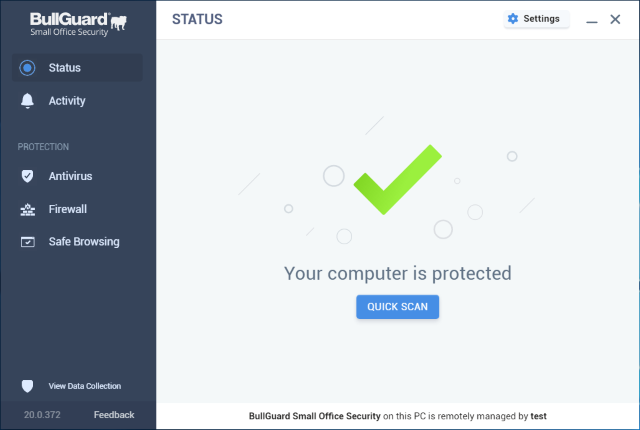Google bans Zoom and the US senate warns against its use

Once a specialist tool, then the darling of the video conferencing world, Zoom's fall from grace has been fairly spectacular. A series of privacy and security issues have put off numerous users, and led to some institutions instigating a ban on the software.
Google has now followed the lead of schools across the US, banning employees from using Zoom because of concerns about security. Senators in the US have also been warned against using the service.
Zoom teams up with security experts, including Facebook's former Chief Security Officer, to address privacy and safety

The privacy and security scandals that have blighted Zoom have already caused some users to look for alternatives, but the company seems serious about trying to address the issues that have sparked concern.
Having already issued an apology to users, Zoom CEO Eric S Yuan has now revealed that his company is collaborating with numerous big-name CISOs (chief information security officers) to ensure the implementation of security and privacy best practices. He also says that Facebook's former Chief Security Officer, Alex Stamos, is joining the company as a security advisor.
Avast Secure Browser lands on Android complete with a built-in VPN

Avast has launched an Android version of its security- and privacy-focused web browser. Avast Secure Browser features various DNS options and a built-in VPN to calm the fears of those concerned about their privacy.
This is not all the browser has to offer. There's also anti-tracking technology and complete data encryption to take care of the security side of things as well.
Stolen Zoom account credentials are freely available on the dark web

Loved, hated, trusted and feared in just about equal measure, Zoom has been all but unavoidable in recent weeks. Following on from a combination of privacy and security scandals, credentials for numerous Zoom account have been found on the dark web.
The credentials were hardly hidden -- aside from being on the dark web. Details were shared on a popular forum, including the email address, password, meeting ID, host key and host name associated with compromised accounts.
Microsoft announces IPE, a Linux Security Module that adds new code integrity features to the kernel

Microsoft's embracing of Linux continues, and the company's latest project sees it trying to improve the security and integrity of systems. The Windows-maker has launched a Linux Security Module (LSM) called Integrity Policy Enforcement (IPE).
The kernel add-on gives administrators the option of configuring policies that can enforce integrity requirements across an entire system. It is possible to create a list of binaries that are permitted to run, and specify attributes that need to be checked before execution is allowed.
The challenges of securing a remote workforce [Q&A]

The current coronavirus crisis has led to a massive surge in numbers of people working from home. But that raises a whole raft of problems in keeping people and data secure.
We spoke to Nitin Agale, SVP, product and strategy at security automation specialist Securonix, to find out more about the challenges and how organizations can address them.
New email service aims to give users full control of their inboxes
Email is now the primary form of communication for most people, but a side effect of that is it's also become the primary means of distributing malware and other threats as well as becoming an advertising medium.
Edison Software has announced that this summer it's launching OnMail, which it claims is the first mail service to provide users with full control over what can enter their inboxes.
Taiwanese government bans agencies from using Zoom because of security concerns

Following on from numerous schools across America implementing bans on the use of Zoom, the government of Taiwan is forbidding agencies from using the video conferencing service because of concerns about security.
The Taiwanese government issued a directive today ordering agencies to "step up video conferencing security". The order states that should video conferencing be necessary, the software used should not have "security or privacy concerns". Zoom is singled out as a tool that is unsuitable.
Chinese APTs have been targeting Linux servers for almost a decade

Five related Advanced Persistent Threat (APT) groups operating in the interest of the Chinese government have systematically targeted Linux servers, Windows systems and mobile devices running Android while remaining undetected for nearly a decade.
A new report from BlackBerry looks at how these threats have been part of pervasive economic espionage operations targeting intellectual property.
Fintech firm Curve launches numberless cards for investors in Europe

Curve, the UK-based fintech company, has announced that European investors from its crowdfunding round will be among the first to received more secure numberless payment cards.
The cards do not feature primary account numbers (PAN) on their face to improve security. The cards' chips have the data stored on them so they can be used for contactless payments, chip and PIN transactions or in machines, and card details can only be accessed from within the Curve mobile app.
BullGuard supports small businesses with three months free Small Office Security

To help small businesses that need assistance managing their cybersecurity in the wake of the disruption caused by the coronavirus pandemic, BullGuard is offering a free, three-month license of BullGuard Small Office Security.
The offer comes with no financial obligations whatsoever and small businesses don't need to submit any form of credit card payment information to obtain their three-month cybersecurity software license.
New solution brings SD-WAN capabilities to securing endpoints

Business workloads are increasingly moving to multi-cloud and SaaS environments and at the same time the endpoint estate is diversifying to include increasing numbers of mobile and IoT devices.
As a result, CIOs and IT teams are struggling to orchestrate and enforce uniform security and compliance policies across distributed workloads and fixed, mobile and IoT devices. Enterprise mobility and connectivity specialist Asavie though has a solution.
Microsoft seeks to elevate Teams above Zoom with commitments to privacy and security

Video conferencing tools like Zoom, Microsoft Teams and Skype have been the center of attention in recent weeks because of companies' increased reliance on them during coronavirus lockdowns. Zoom has been in the headlines for many of the wrong reasons, however, and Microsoft is keen to ensure it doesn't get tarred with the same brush.
The company had made a series of commitments about its Teams software, promising users that their virtual conversations are private and secure.
American schools are banning Zoom and switching to Microsoft Teams

After many schools adopted Zoom to conduct online lessons during the coronavirus lockdown, concerns about security and privacy have led to a ban on the video conferencing software across the US.
The chancellor of New York City's Department of Education Richard A Carranza sent an email to school principals telling them to "cease using Zoom as soon as possible". And he is not alone; schools in other parts of the country have taken similar action, and educators are now being trained to use Microsoft Teams as this has been suggested as a suitable alternative, partly because it is compliant with FERPA (Family Educational Rights and Privacy Act).
Zoom enables meeting passwords and virtual waiting rooms by default as it attempts to beef up security
Zoom's skyrocketing popularity in recent weeks has been both a blessing and a curse for the company. Clearly it welcomes the additional users and, presumably, the income generated, but the company has also found itself under the spotlight resulting in startling revelations about security and privacy.
Having already apologized for a series of issues, Zoom is not taking steps to improve security. In an email sent out to users, the company explains how the virtual waiting room feature will be enabled by default, and meeting participants will now be required to use passwords to join.
Recent Headlines
Most Commented Stories
© 1998-2024 BetaNews, Inc. All Rights Reserved. Privacy Policy - Cookie Policy.